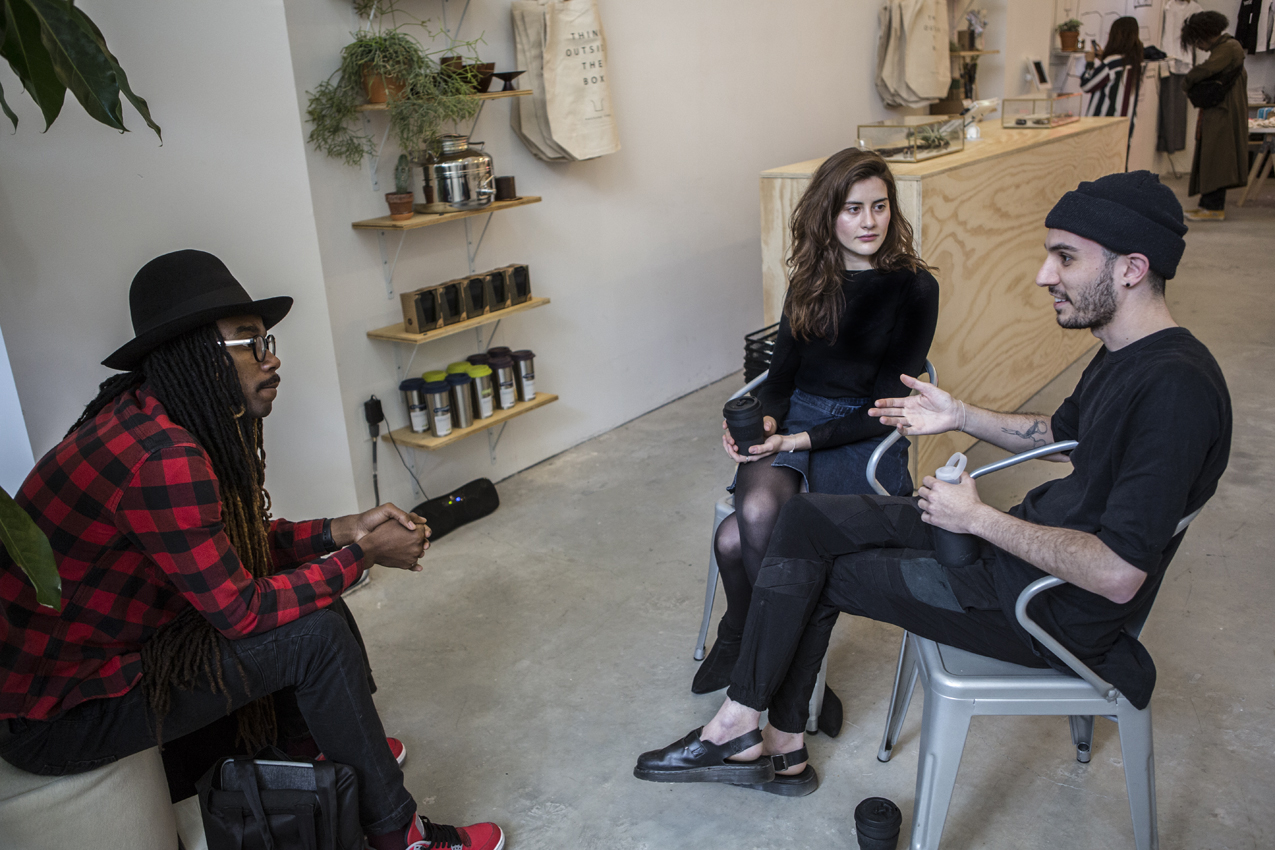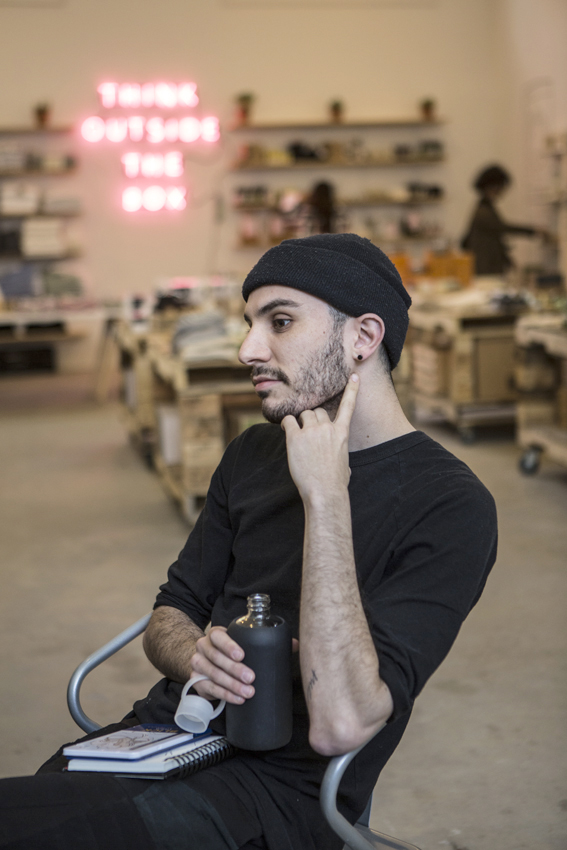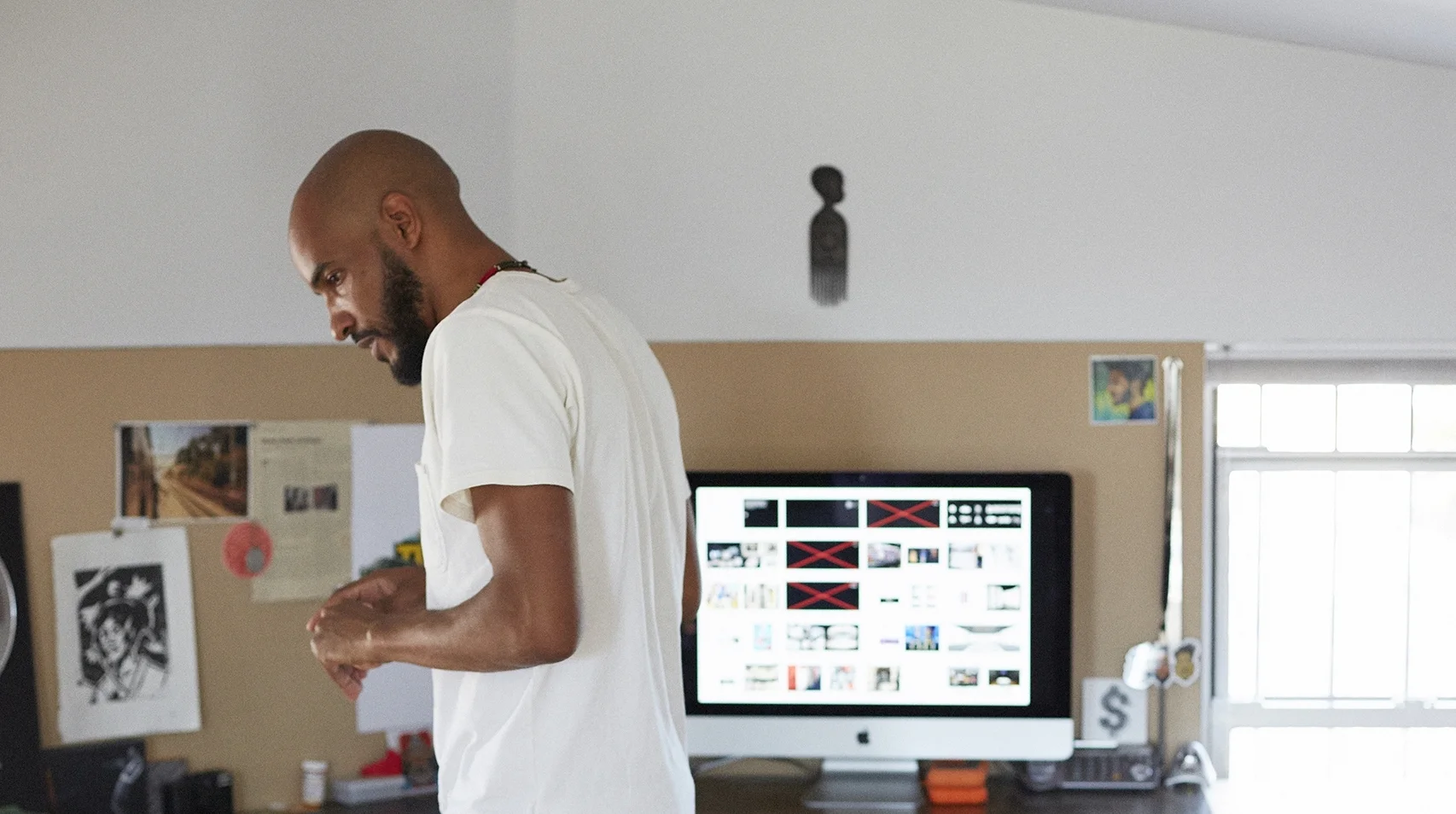WORDS: Yahdon Israel
PHOTOGRAPHY: Zach Gross
There are two paths that lead to Package Free, the one stop pop-up shop, in Williamsburg, Brooklyn, that offers everything we need to transition ourselves to a low waste lifestyle. One of these roads comes by way of Lauren Singer, the 25 year-old Brooklyn-based galvanizer behind Trash is for Tossers. A blog documenting Lauren's attempt to show what a life without waste can look like. The catalyst for Lauren's decision to pursue this journey was informed by two experiences. The first was in her senior year of college where she, while majoring in Environmental Studies, remembers a professor hammering down the importance of "living your values." That the environment, and our relationship to it, was and is more than theory, but practice.
During that same time, Lauren witnessed the wasteful habits of a fellow Environmental studies major, who would bring their lunch in a single use plastic bag, water bottle and plastic container. The irony was enough to drive Lauren mad. But Lauren regained hope when she learned of a family from Mill Valley, California, who produced little to no garbage under the moniker Zero Waste Home. This was all Lauren needed to see. People who walked their talk, even if others were unable to follow. Lauren takes this path seriously. She not only reduced her waste exponentially—her trash from the last four years of her life literally fits into a 16oz mason jar—but with her organic laundry detergent, The Simply Co., she's also changing the way we clean our clothes. Lauren began making her own detergent when, a year into her TIFT blog, she began receiving notes from her followers, asking her which cleaning products were toxic free. The more she looked to give her followers answers, the more she realized she didn't have them. So she made her own.
The other path to Package Free is the one of New York based fashion designer, Daniel Silverstein, whose clothing brand Zero Waste Daniel, treats discarded textiles the way a well-seasoned chef uses day-old ingredients. His brand reinvents the notion of "old" to expand the possibility of what new can be. Like Lauren, Daniel bore witness to the insanely wasteful methods of the fashion industry and decided the best way to lead the new frontier of a cutting back on waste is by example. His pattern making techniques make it so that 100% of the fabric is used. For many, "reduce, reuse and recycle" is a catchy slogan. For Daniel it's the light that guides him, leading him to be a finalist on NBC's Fashion Star. Daniel understands that fashion impacts the earth we live on as well as the bodies we live in.
Lauren and Daniel's parallel paths converge at Package Free, where we talked to them about the impact we have on the environment, our responsibility to each other as global citizens to save it, and how we can do it, one package at a time.
What was the first thing you remember making?
Lauren: That's poop. It's probably the first thing that I ever made with my body. And I think it plays into the idea that people think the things that they create as humans as segregated from the larger idea of waste. The things that we make are also trash, even though they're something created by us. People are like, "Going to the bathroom is so natural." Or like, "Making clothing is so artistic." But, I think that Daniel has realized that, even though it's art, it's also trash. Even though something that I do is natural, it's also waste and removed from this system even though we categorize the product as something other than trash, which is funny because it almost removes the human form the culprit of waste.
Daniel: I could remember the barbie doll. My sister and I used to call her Kira because I liked that name. Our parents were out. I don't remember what my sister was doing but I took an entire box of tissues, a whole roll of tape, and made dresses on every single one of the barbies in the house. My mom was like, "What the 'f'? You cannot take all the tissues and use all the tape." I was like, "Oh." Then, the next day she came home and I had used a whole roll of tin foil.
Why do you do what you do?
Lauren: I remember in the fifth grade, there was this girl that someone made fun of—I think it was her dress—and it made me feel like dying. I just remember thinking, "How could people be so mean?" That deep-seated sense of empathy manifested itself when I was in high school when I became aware of what was going on with the environment. Then when I started learning about environmental issues through reading Rachel Carson's book, Silent Spring, I found myself returning to the same kind of concept of like, "How can people be so destructive and inconsiderate?" I think everything that I do is to try and combat these things that I don't understand. My goal in life is to help create positive environmental change. I know that if I do anything, it has to align with that goal.
Daniel: I've explained to people many times in my life, art is a compulsion. I was that kid who liked to stare at the clouds and see shapes. I cannot help but look at life with a different perspective.
I struggled with most of my young life to figure out what was "wrong" with me. I was so distracted all the time. I was tested for ADHD. My mother, thank god for her, refused to medicate me. Her approach was, "He's creative, and he's smart." Every time they took me to be tested, I could focus and I could take a test, I was just bored. After some time of asking, "Am I an artist? Am I a designer? What am I doing?" I figured out a way to use that for my benefit. To advance the field that I'm working in. To see things in other shapes. That's how I started my career.
I started my collection with the idea of making patterns that have no byproducts because, I didn't want to be a part of the wasteful aspect of the fashion industry. I would look at these patterns and say, "Well that kind of looks like something we could use. So why don't we flip that sideways and make that a sleeve?" It was that kind of working with shapes and continuing to innovate on patterns that eventually led me to realize: it didn't matter how many times I could, individually, make a cool pattern that didn't waste anything. I am a part of an industry that's still insanely wasteful. So I started to ask myself how do I spread this awareness.
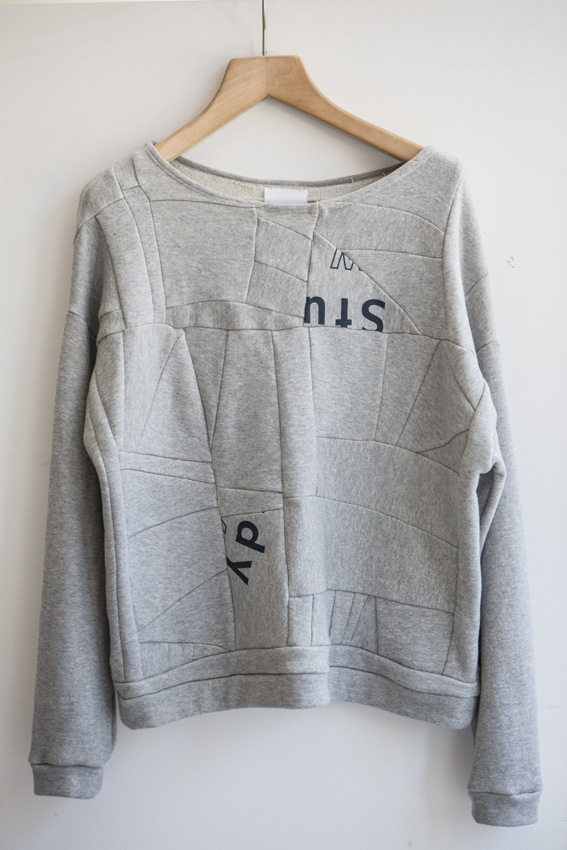
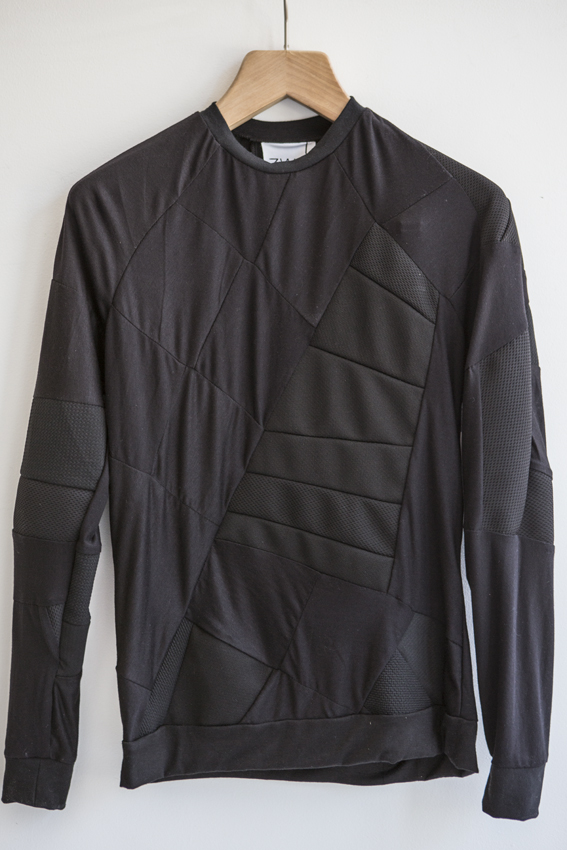
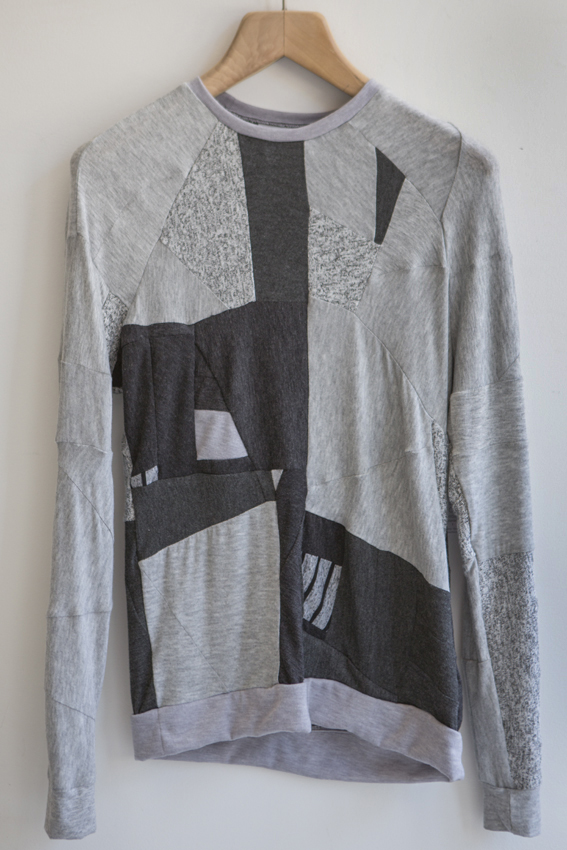
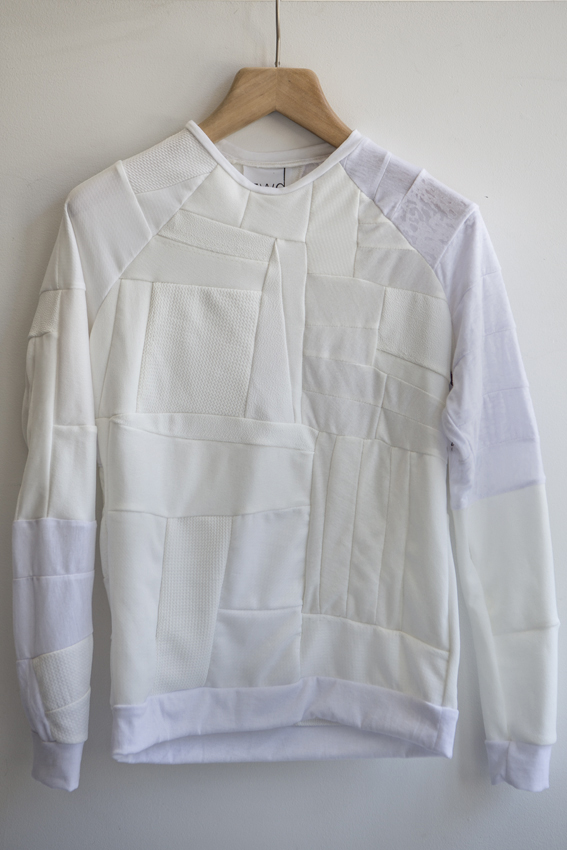
What's interesting about is that you both seem to have internalized a sense of personal responsibility about what happens in the world. Some people don't see the environment, or anything beyond them, as their responsibility.
Lauren: I think there's a disconnect for a lot of people. One step further is, "I'm not even responsible for this, because this doesn't contribute to that." Many people don't see, or believe that their actions have an impact on the system. I feel the complete opposite of that. I feel like every single person's actions are what create the system. If you don't do everything in your power to create the world you want to live in, that world will never exist.
In addition to making products that teaches sustainability and accountability, what other ways have you each found to empower people? To make them see that their we all play a role in this?
Lauren: With Daniel and I, the first thing we both did was change the way we were doing things in our own life before we even tried to tell other people. By our own lives, I mean, Daniel within his world and life of creating and designing, and me just in my own personal life to live in alignment with the things that I was studying. And what I found is that, by doing something for yourself and living your truth consistently, people eventually want to know what you're doing. They'll find interest in you. If you just start talking about what you're doing, it's contagious.
Daniel: Two things. One of them is sort of to your point of feeling this personal sense of responsibility, I've heard a lot of people say like, "Oh you're so very millennial. Super millennial." I take that as a compliment because I think that as millennials we're broken into two different groups. There's the group that feels insanely entitled, and then there's the group that feels insanely responsible.
I think that Lauren and I found each other because we both fall into this group of young people who feel like, if we were raised to feel like we were special, if we were raised to feel like we had every opportunity, then it's up to us to fix things.
Where did you find your inspiration from? Who are some inspirations from where you're standing?
Daniel: One of my biggest inspirations, and she hates when I say this, is my big sister. She's not particularly interested in fashion. She's not particularly interested in city life or any of that stuff. She cares about the environment, about leaving no trace, about living an authentic life that makes you happy, about doing something that you're passionate about. She cares about exactly what you mean and meaning exactly what you say. To me, it was like, "How do I express myself creatively through the art form that I love and still impress someone who doesn't care about what I do?"
Lauren: It's like when you're asked those questions in college on the essays and they're like, "Who inspires you?" I was always that person who was like, "No one?" For me now, it's not as much inspired but, it's energized by who takes responsibility by the world around them, sees a problem, and makes it their mission to change it.
What is something that you wish that you would have known sooner?
Lauren: I feel like how we did everything was exactly how it had to happen. Entropic, chaotic, creative, collaborative, just mess and chaos. Everything just came together so perfectly because it was exactly what it was supposed to be. Daniel and I came up with this idea four months ago. Creating it was like breathing. When we have an idea that feeds us, it has to happen. For us, opening the store, there was no choice. From the four moths ago when we first had the semi-drunken conversation to start this store, to now. We built up this store in a week, which is something that no rational person would ever do because it's crazy, but we made it work.
Everything happened organically. I think that's what happens when you have a project that's bigger than you. It's about creating the world that we want to live in. I think it was so easy for other people to just connect to that idea and want to be a part of it.
Daniel: That's a great way to put it. One of my best friends had said to me at the launch party, "You are the definition of 'If you hadn't done it exactly the way you did, you wouldn't be here.'" It was like you had to fail at something. I had to go through a personal loss. I needed to lose myself and find myself to come exactly here. One thing that Lauren and I both came into this experience with is having had business partners before. That awareness and that life experience made it so easy and no natural to work together. I couldn't have done this a year ago. I couldn't have done this five years ago. It had to be now.
One of the things that I heard you say Lauren, is that living a zero waste is not hard; it's inconvenient. That's a very poignant distinction to make. What's been the reaction to this that you weren't expecting to receive?
Lauren: I don't think I was expecting anything. I also didn't have time to expect anything. When I do something it happens because it has to. I don't give myself any other options. When Daniel and I decided that we were going to open the store, there was no other option. My only expectations was that we were going to have a store, that it was going to be amazing, and that it was going to be open. That's the intention that I set.
We got asked a question in the CNN article about why we decided opening a store as oppose to curating a digital space. I've been in the digital space for four years now with my blog. I've seen the numbers and know the hundreds of thousands of people that come to my site, but those numbers don't mean as much to me as seeing what those numbers reflect, which is actual people.
The unexpected thing, for me, is seeing real people come here and tell us, "I have reduced my waste because of you two." Before opening this shop, there was just this idea of people. Connecting to people, hearing their stories, and why they're reducing their waste, is why physical spaces will never go extinct. That human connection, and talking to people, and understanding how making these steps has changed their life is like air. It's what feeds us. I didn't expect that I would be so captivated by the people that were drawn to this idea.
People need to take responsibility and with this shop I'm seeing that people want to take responsibility. We're empathetic, sympathetic creatures. We can't live in a world devoid of human connection, contrary to what the internet is trying to make us think.
Daniel: People keep saying, "Thank you for doing this." It's almost chilling to hear because I wasn't expecting it. At times as an entrepreneur, everything feels incredibly selfish. My life is so focused on my work and what I'm doing. So sometimes I have to say "no" to attending someone's event, or say "no" to a meeting with someone I care about, and it makes me feel like I'm doing is self-centered. To have this reaction, where people feel like I'm doing is for them also, is so heartwarming.
What do you feel like this journey has taught you about yourselves?
Lauren: I think I learned that I need people. We are so much stronger together than we are when we're a part. I could have had this idea and Daniel could have this idea, and we could have tried to do it by ourselves but, it never would have been what it is now. There would be seconds where Daniel and I would be outside doing our own thing, and while we were out there, people who just wanted to be involved—not because they were being paid or hired or whatever—came and helped. I really didn't expect that energy and it just changed my outlook on community completely. Contrary to how stubborn or independent I think I am, I've learned that I need community.
Daniel: I learned I am someone who prides myself on my sense of self. I'm really in touch with my feelings. I know how I feel about things. I know what I want and what I care about. In a very weird way, I've been so disconnected form myself for such a long time. I've heard that phrase ;do what you love then money will come' a million times in my life. Package free is the first time, and the culminating event in my life so far, of actually doing what I love. What I really, really ... I mean, this is the first project ever where I didn't ask anyone. I didn't get any opinions. I didn't try and get permission. I just said, "I have to do this." And Lauren said yes to this adventure with me. I was like, "Do you want to do this together?" We agreed mutually. This feels like it's who I am.
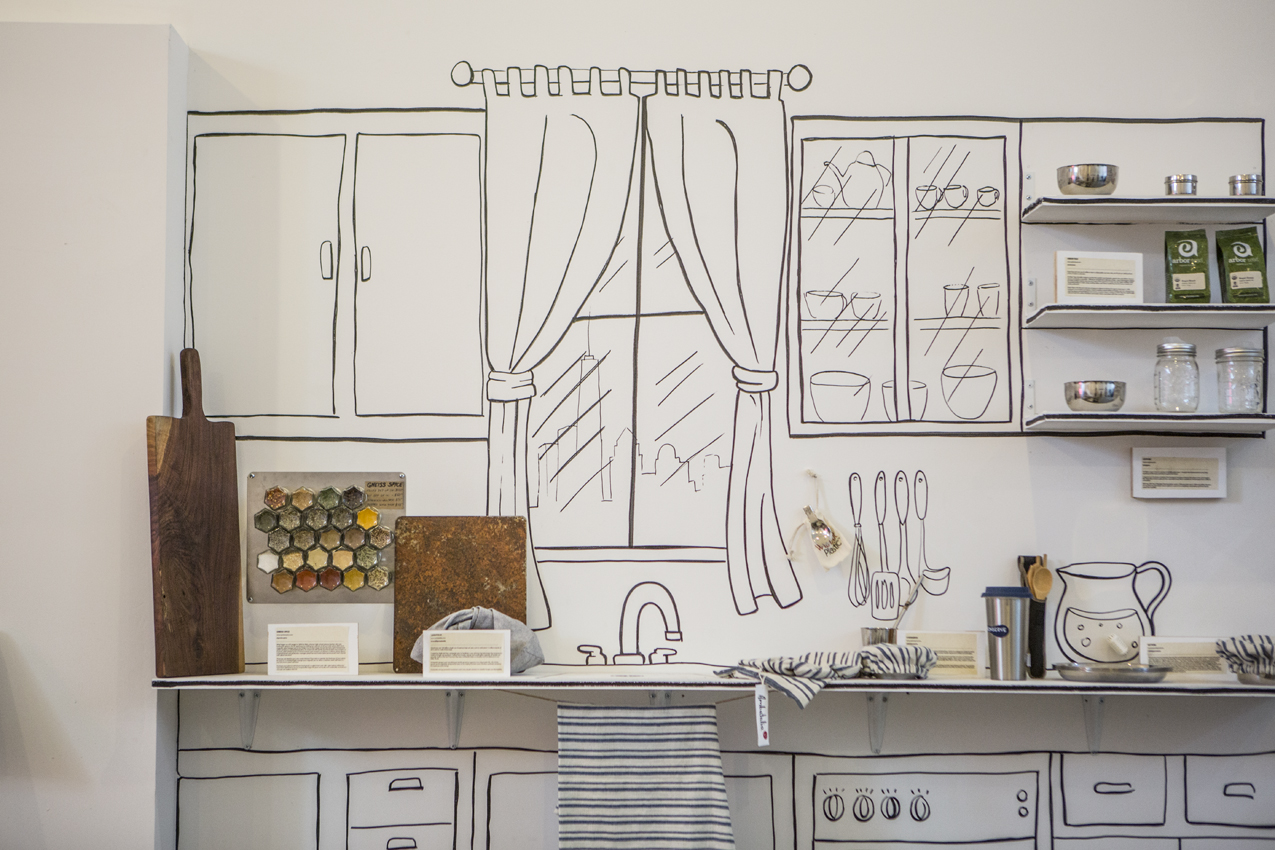
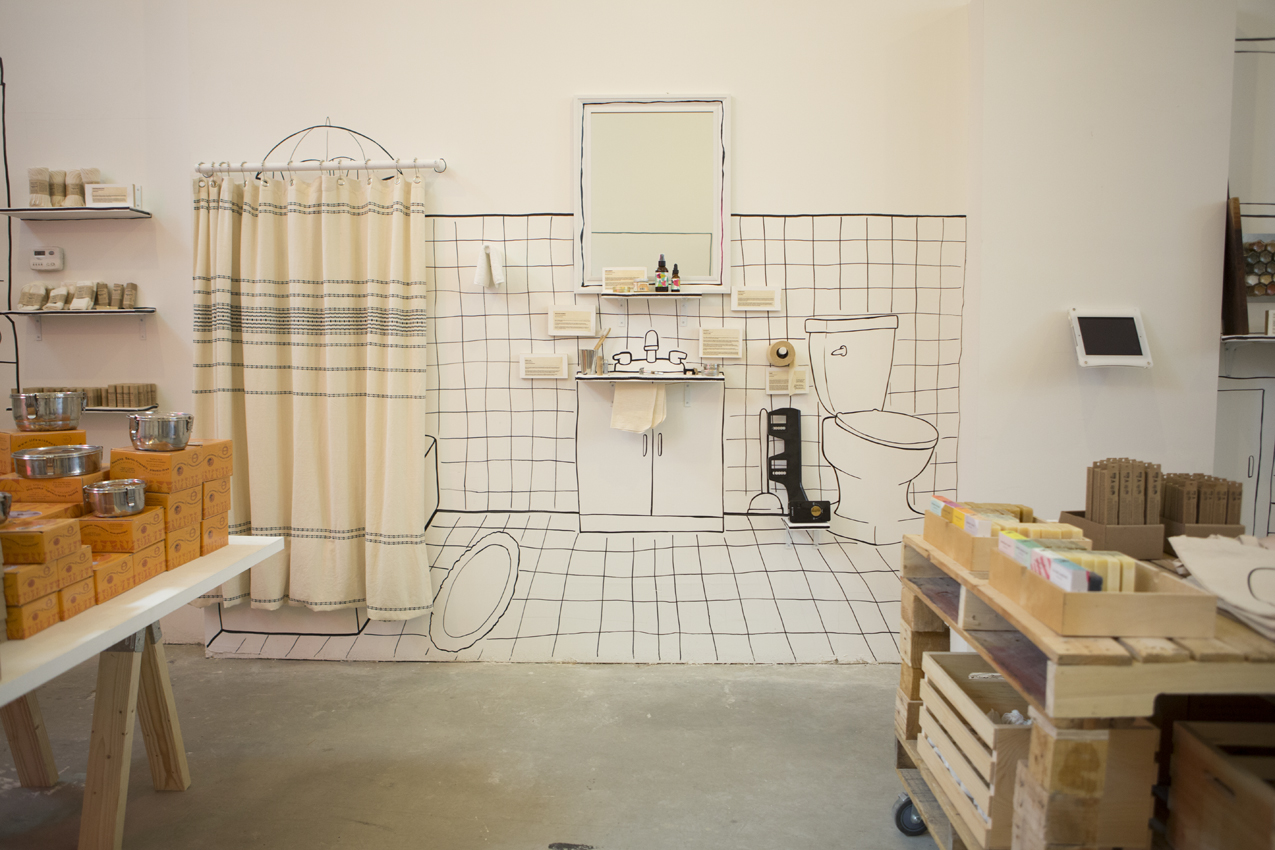
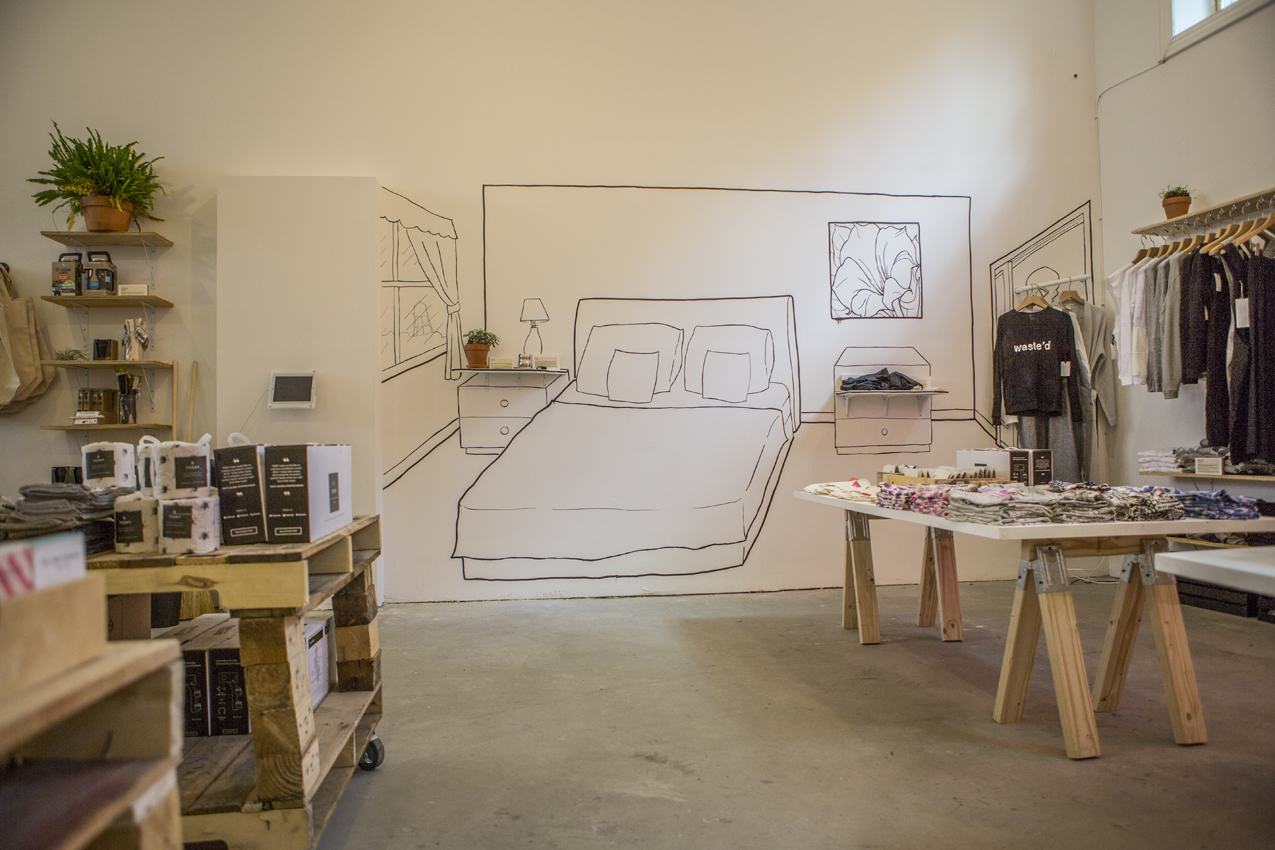
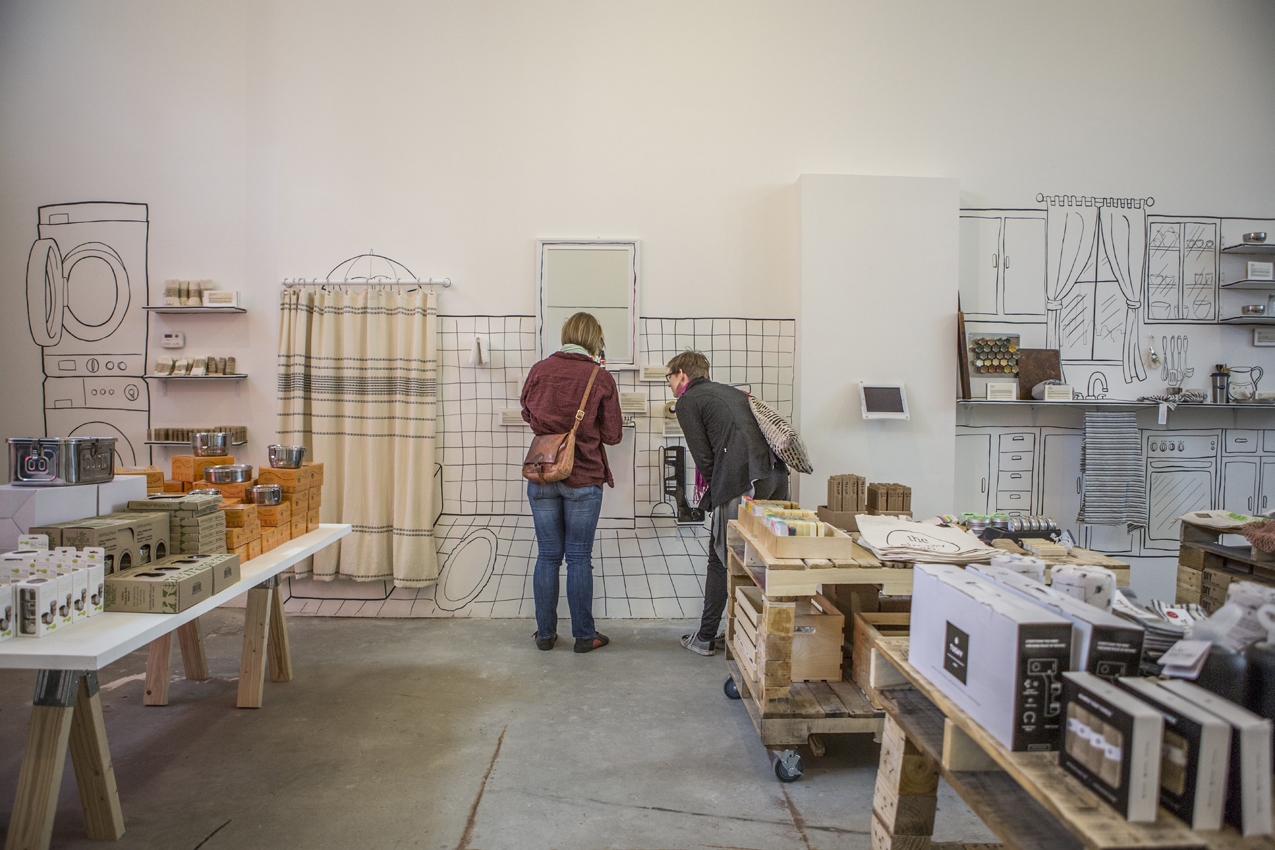
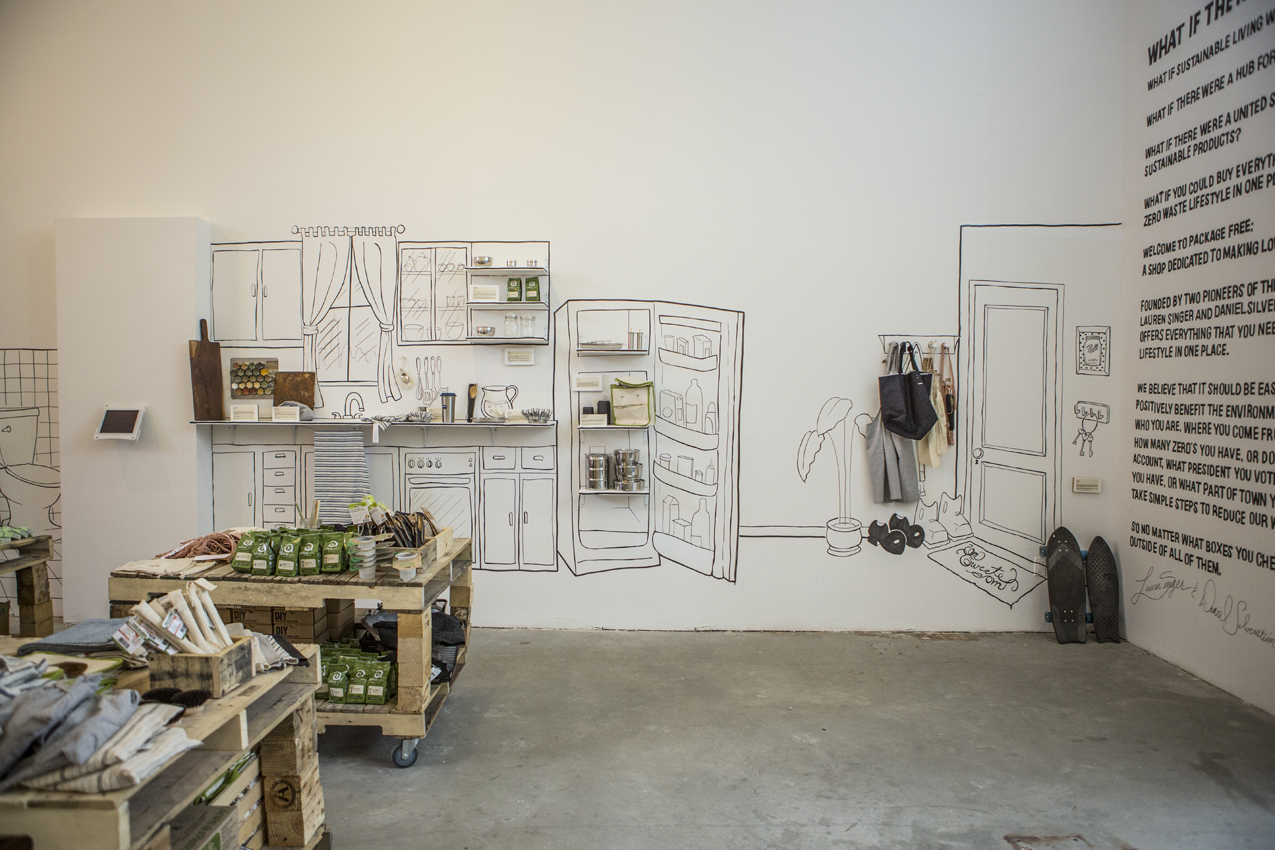
What do ya'll feel like you all need to continue doing what ya'll do to keep this movement moving?
Daniel: I have a need to create. I don't need to ask people if I can make things. Take every material away from me, and ill make something out of what's left. That's the authenticity of who I am as a designer and a maker. With Package Free, we are not independently wealthy. We are not trust fund kids. I personally, barely have an income. If I wasn't living a zero waste life, I couldn't afford to be in New York. It's that kind of authenticity that Package Free came out of. This was something where there was enough community support, industry support, and enough of that need to create that fueled Package Free.
Lauren: For me, I think that a lot of children aren't asked enough, "What makes you feel good? What do you want? Why are you doing what you're doing?" We're asked, "How does this other person feel? What are you doing that bothers someone? What are you doing that makes someone feel good?" What I need to keep doing this is just asking myself, how do I feel? Do I feel energized? Is this something that I want to be doing? What is it that I want to be doing? What are my values? What do I care about? I think that's what helps to keep things authentic is knowing my value. My goal is positive environmental change. That's what I care about, and that's what I'll always care about. It's just checking in with myself regularly and being like, "Am I living in alignment with that sentiment?" Just making sure on a daily, multiple times per day, that I'm checking in and making sure that I'm on the path that I want to be on and that I feel good.
MakersFinders is a digital platform that connects independent makers to passionate finders.
We have an app in private beta. We publish stories. We host events. And provide quarterly grants for our community of Makers and Finders.
Our team is dedicated to cultivating and connecting communities across various industries and cultures.









